Music education advocacy is more crucial than ever in today’s educational landscape. As budgets tighten and priorities shift, it’s up to passionate educators, parents, students, and community members to ensure that music programs remain a vital part of our schools. This comprehensive guide will equip you with the tools and strategies needed to become an effective champion for music education, from your local classroom all the way to the halls of government.
Understanding the Impact of Music Education
Before diving into advocacy strategies, it’s essential to grasp the profound impact of music education on students and communities. Research consistently shows that music education:
According to the National Association for Music Education (NAfME), music education should be taught by certified music educators, delivering sequential, standards-based music education to all students across the nation, regardless of personal circumstance or background.
Building Your Advocacy Toolkit
Effective music education advocacy requires a well-stocked toolkit of information, skills, and resources. Let’s explore the essential components:
Gathering Data and Research
Start by collecting robust data and research that support the benefits of music education. Look for:
Create a digital or physical folder to organize this information, making it easily accessible when needed for presentations or discussions with policymakers.
Crafting Your Message
Develop a clear, concise message that communicates the value of music education. Your core message should:
- Highlight the benefits of music education
- Emphasize that music is an essential part of a well-rounded education, not just an extracurricular activity
- Address common concerns or misconceptions about music programs
- Include a clear call to action for your audience
Practice delivering your message in various formats – a 30-second elevator pitch, a 2-minute overview, and a longer, more detailed explanation.
Engaging with Policymakers
Policymakers play a crucial role in shaping the future of music education. Learning how to effectively engage with them is a key skill for any music education advocate.
Attending Town Halls and Public Events
Town halls and public events offer excellent opportunities to voice your support for music education. To make the most of these events:
- Research the event and attendees beforehand
- Prepare a concise statement or question
- Arrive early to sign up for speaking opportunities
- Be respectful and professional in your delivery
- Follow up with any contacts made at the event
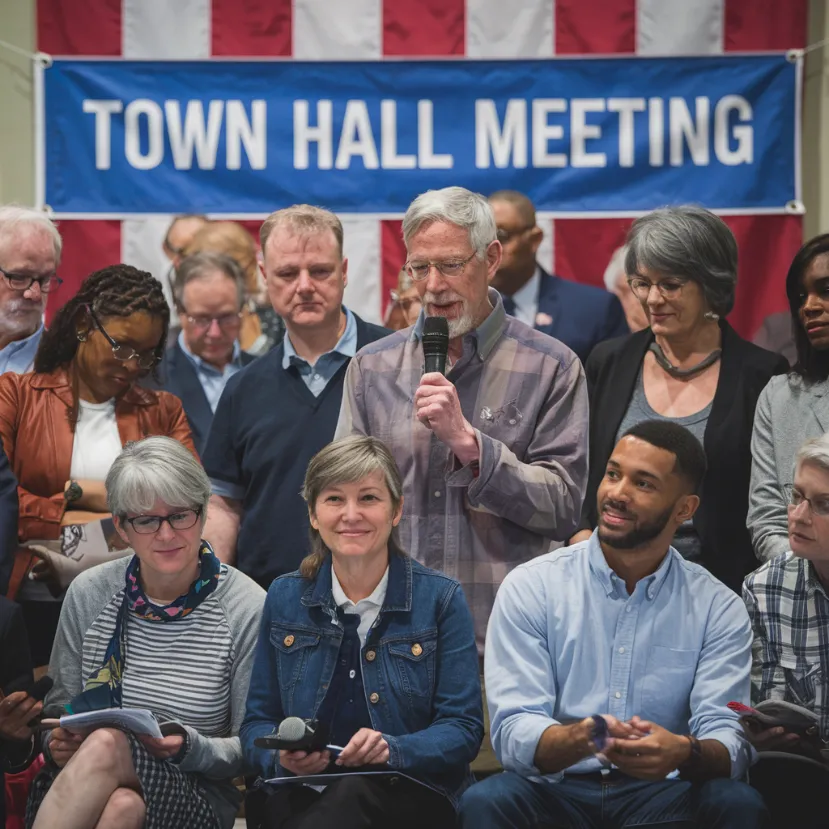
Scheduling One-on-One Meetings
Personal meetings with policymakers can be highly effective. To prepare:
- Research the policymaker’s background and stance on education issues
- Schedule the meeting well in advance
- Prepare a clear agenda and talking points
- Bring relevant materials, including your data and research
- Be punctual, professional, and respectful
- Follow up with a thank-you note and any requested information
Remember, building relationships with policymakers is an ongoing process. Stay in touch and provide updates on music education initiatives in your community.
Creating Powerful Presentations
Whether you’re addressing a school board, parent group, or community organization, a compelling presentation can significantly boost your music education advocacy efforts.
Key Elements of an Effective Presentation
- Start with a strong opening that grabs attention
- Clearly outline the benefits of music education
- Use data and research to support your points
- Share real-life success stories and examples
- Address potential concerns or objections
- End with a clear call to action
Visual Representation and Storytelling
Enhance your presentation with:
- Infographics displaying key statistics
- Photos or videos of students engaged in music activities
- Testimonial videos from students, parents, or community members
- Charts showing the impact of music education on academic performance
Remember to practice your presentation multiple times to ensure smooth delivery and confident body language.
Mobilizing Your Community
Successful music education advocacy often requires a collective effort. Here’s how to mobilize your community:
Forming Coalitions
- Identify potential partners (e.g., parent groups, local musicians, arts organizations)
- Reach out and explain the importance of music education advocacy
- Organize regular meetings to coordinate efforts
- Assign roles based on individual strengths and resources
- Create a shared calendar of advocacy events and deadlines
Leveraging Social Media
Social media can be a powerful tool for music education advocacy:
- Create dedicated social media accounts for your advocacy efforts
- Share regular updates, success stories, and calls to action
- Use hashtags to increase visibility (e.g., #MusicEdMatters, #SaveSchoolMusic)
- Engage with followers and respond to comments promptly
- Live-stream music performances or advocacy events
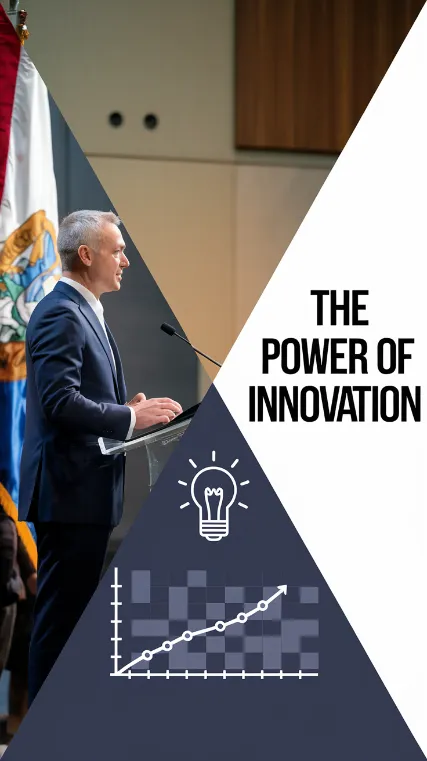
Remember to maintain a positive, informative tone in your social media presence, focusing on the benefits of music education rather than criticizing opponents.
Music education advocacy is an ongoing journey that requires persistence, passion, and adaptability. By understanding the impact of music education, building a strong advocacy toolkit, engaging with policymakers, creating powerful presentations, and mobilizing your community, you can make a significant difference in ensuring that music remains a vital part of education for generations to come.
As you continue your advocacy efforts, remember that you’re not alone in this mission. There are numerous resources and organizations dedicated to supporting music education, including online platforms that provide accessible, high-quality music education to students of all backgrounds. By working together and leveraging these resources, we can create a future where every student has the opportunity to experience the transformative power of music education.
For more information on getting started with music education advocacy, visit the Save the Music Foundation’s advocacy resources.
This blog is generated from material covered in the PM professional development session: “Advocating for Music Programs” presented by Troy Peterson

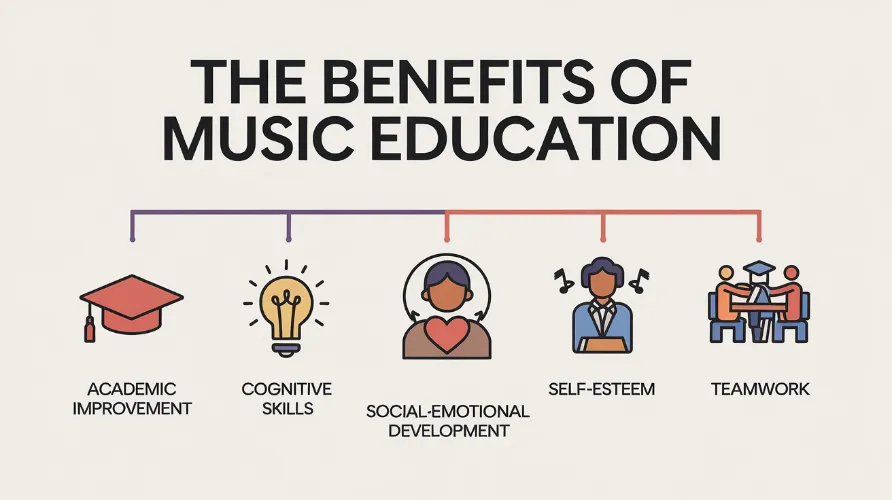

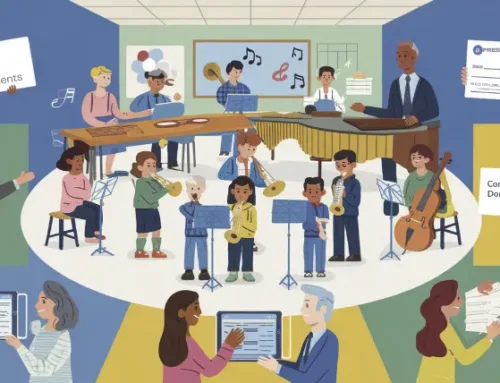
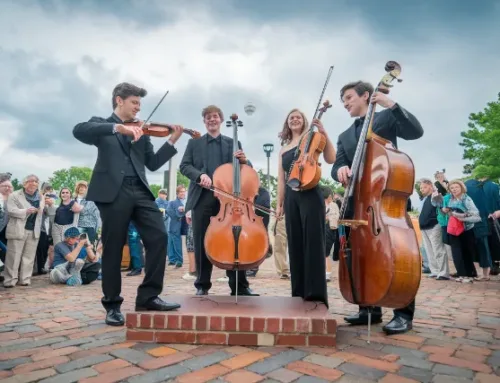
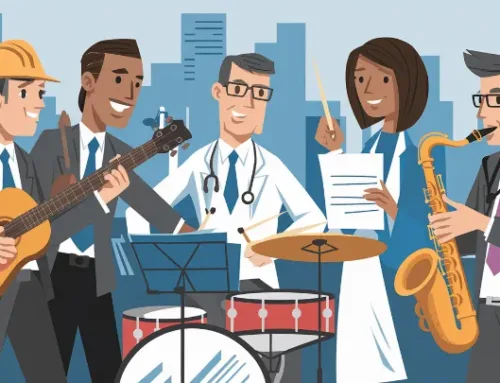

Leave A Comment
You must be logged in to post a comment.